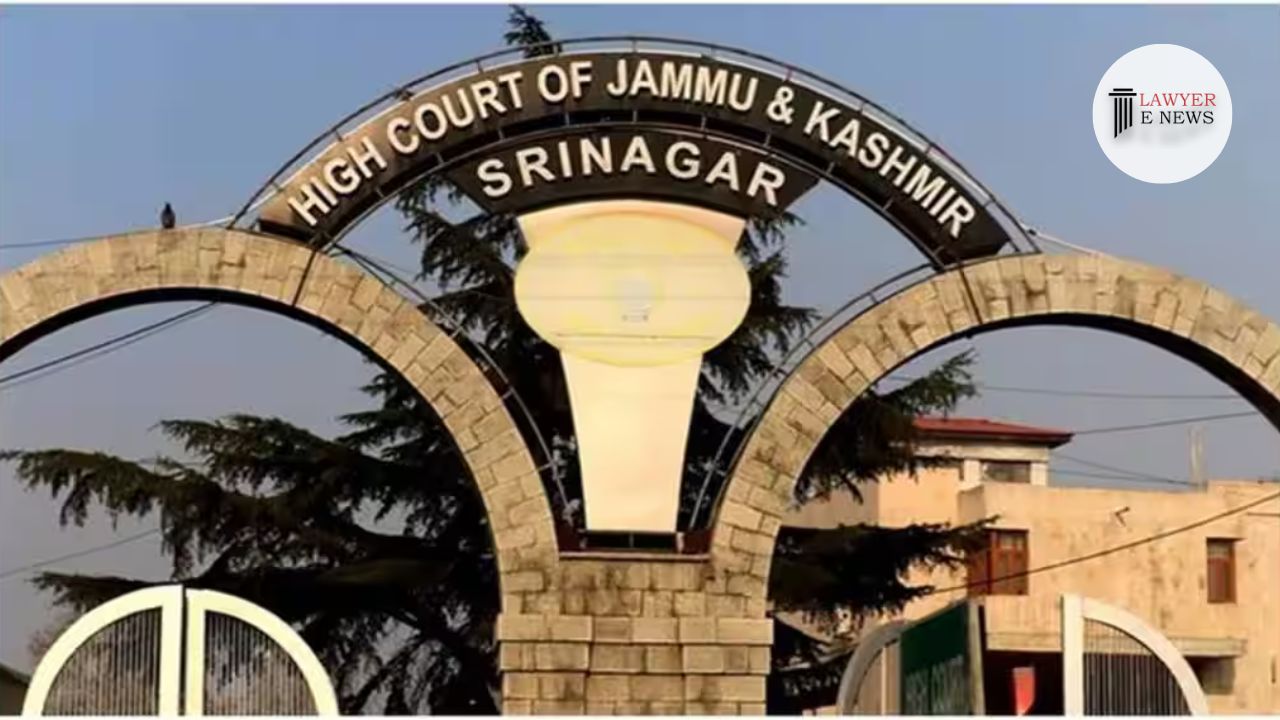-
by Admin
15 February 2026 5:35 AM



In a significant ruling, the High Court of Jammu & Kashmir and Ladakh at Srinagar has declared the Juvenile Justice Board to possess the trappings of a “Criminal Court.” The court made this observation while dealing with a case where the petitioner, Hazik Mushtaq, challenged the withholding of his clearance report and sought the re-issuance of his passport/travel document. The judgement was pronounced on 19th July 2023.
The petitioner, falsely implicated in a criminal case registered under IPC Sections 447, 354, 323, 382, and 201, had applied for re-issuance of his passport, which had expired. However, the authorities withheld the travel document citing the pendency of proceedings before the Juvenile Justice Board. The petitioner’s counsel argued that the Juvenile Justice Act was a welfare legislation, and the proceedings before the Board should not be deemed as “criminal proceedings.”
Justice Sanjay Dhar, presiding over the bench, examined the provisions of the Juvenile Justice (Care and Protection of Children) Act, 2015, and held that the Juvenile Justice Board, being a forum created by law with the powers of a Judicial Magistrate, First Class, qualifies as a “Criminal Court.” Consequently, the proceedings pending against the petitioner before the Board attracted Section 6(2)(f) of the Passport Act, which empowers the authorities to withhold passports in cases with pending criminal proceedings.
The court also referred to an Office Memorandum issued by the Government of India, Ministry of External Affairs, which exempts citizens with pending criminal proceedings from the operation of Section 6(2)(f) of the Passport Act, subject to appropriate orders from the concerned court permitting travel abroad.
While the proceedings before the Juvenile Justice Board had been stayed by the High Court in a separate petition, the court clarified that the stay did not mean the proceedings ceased to exist. Therefore, the withholding of the passport was justified as the proceedings were still pending before the Board.
The judgement further noted that the petitioner could still be issued the passport/travel document subject to obtaining appropriate orders from the Juvenile Justice Board. If the Board grants permission for issuance, the petitioner’s academic career, which was at stake, would not be hindered.
With this landmark ruling, the High Court’s interpretation of the Juvenile Justice Act and the Passport Act will have implications on cases involving juveniles and their right to travel while facing legal proceedings.
Date of Decision: 19.07.2023
HAZIK MUSHTAQ vs UT OF J&K AND OTHERS.
